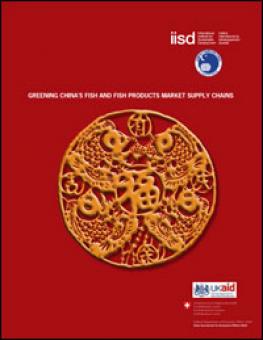
Greening China's Fish And Fish Products Market Supply Chains: Summary report
China is now the world's largest producer, consumer and exporter of seafood.
Its role in market supply chains is especially important. There is worldwide interest in the greening of these supply chains, taking into account sustainability impacts on species and stocks, as well as ecosystems within China and elsewhere in the supply chains. International certification processes such as those of the Marine Stewardship Council (MSC) and various seafood consumptions guides are examples of how this international interest is shifting global production, processing, trade and consumption patterns. This is a summary of a larger report (Greening China's Fish and Fish Products Market Supply Chains) that examined these patterns in detail.
China's fishery and aquaculture sector leads the world. Whatever the directions of China's future expansion of production, import and export, and domestic consumption, it will profoundly affect the sustainable use and regeneration of global aquatic resources. The great range of products, the success with aquaculture (which now exceeds fisheries in scale), and the ability to create a great variety of market supply chains in an adaptive fashion are positive signals of a dynamic development capacity in China's aquatic resource exploitation. The fundamental question is whether the exponential growth can continue, or if China is already experiencing limits as to what it might expect to harvest from the seas, lakes and rivers, and from the flooded lands and other areas where aquaculture takes place.
Participating experts
You might also be interested in
Agreement on Climate Change, Trade and Sustainability: A landmark pact for trade and sustainability
The ACCTS pact, signed by Costa Rica, Iceland, New Zealand, and Switzerland, aligns trade and environmental policies, tackling fossil fuel subsidies, eco-labels, and green trade.
The Responsible Agricultural Investment Tool for Agribusiness and Case Studies
This report summarizes a collaboration to support agribusinesses in complying with principles of responsible investment in agriculture and food systems.
Promoting the Development of Agricultural Cooperatives
Governments in the Global South should promote agricultural cooperatives to boost smallholder access to fair markets, finance, and climate resilience.
Navigating Global Sustainability Standards in the Mining Sector
This brief examines the latest developments and trends in responsible mining standards and voluntary sustainability initiatives.